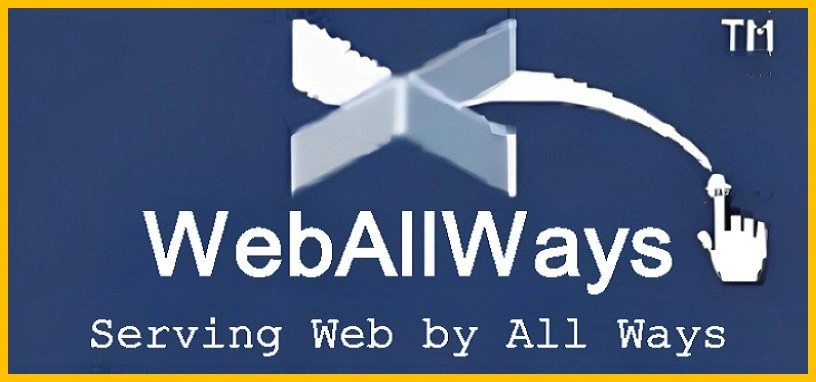
In the dynamic realm of search engine optimization (SEO), understanding and leveraging Page Authority (PA) is crucial for achieving higher rankings and driving traffic. This comprehensive guide from WebAllWays explores every aspect of Page Authority—its significance, calculation methods, and strategies for improvement. Whether you’re an SEO professional or a business owner, this guide will provide you with actionable insights to enhance your website’s performance.
Defining Page Authority
Page Authority, a metric developed by Moz, serves as an indicator of how well a specific webpage is likely to rank in search engine results. Unlike Domain Authority (DA), which assesses the strength of an entire domain, PA focuses on individual pages, offering a more granular perspective on ranking potential.
Understanding Page Authority Scores
- Score Range and Interpretation: Page Authority is measured on a scale from 1 to 100, where higher numbers represent a greater ability to rank well in search engines. Scores are logarithmic, meaning that moving from a PA of 20 to 30 is significantly easier than moving from 70 to 80.
- Predictive Nature: PA is a predictive metric rather than a direct ranking factor, reflecting the likelihood of a page ranking well based on various influencing factors.
Confused between domain authority and page authority? Clear your doubts with our detailed comparison of domain authority vs page authority.
The Importance of Page Authority in SEO
Page Authority is instrumental in evaluating and enhancing a page’s search engine ranking potential. It provides key benefits for:
Competitive Analysis
- Benchmarking Against Competitors: By comparing PA scores with competitors, you can identify areas where your pages may lag and adjust your SEO strategies accordingly.
- Market Positioning: Understanding PA helps you position your content more strategically within your niche.
Strategic Planning
- Prioritizing SEO Efforts: Focus on optimizing pages with high PA potential to maximize impact.
- Content Strategy Development: Align your content creation efforts with high-PA pages to leverage their ranking potential.
Performance Tracking
- Monitoring SEO Success: Regularly track PA to assess the effectiveness of your SEO campaigns and make data-driven adjustments.
- Evaluating SEO Strategies: Use PA changes to gauge the impact of various SEO tactics over time.
The Calculation of Page Authority
Moz calculates Page Authority using a machine learning model that incorporates various factors to predict ranking potential. This model is informed by:
Link Metrics
- Inbound Links: The number and quality of backlinks pointing to your page are crucial for boosting PA. High-quality, authoritative links contribute significantly more than lower-quality links.
- Link Diversity: A diverse range of backlinks from different sources enhances PA, improving the page’s overall authority.
On-Page SEO Factors
These are the on-page SEO factors that affect the score of page authority:
- Content Quality: Pages with high-quality, relevant content tend to attract more backlinks and engage users more effectively, which positively impacts PA.
- User Experience (UX): Factors such as page speed, mobile-friendliness, and ease of navigation contribute to a better user experience and can indirectly affect PA.
Site Structure and Internal Linking
- Internal Links: Effective internal linking helps distribute authority across your site, strengthening the PA of individual pages.
- Site Architecture: A well-structured site facilitates better crawling and indexing by search engines, contributing to improved PA.
Moz’s Link Graph
- Link Graph Analysis: Moz’s link graph, which includes data from millions of domains and pages, forms the basis for PA calculations. This extensive data helps Moz’s model understand the relative strength and influence of backlinks.
Tools for Measuring Page Authority
To accurately measure and track Page Authority, you can utilize a variety of tools and methods:
Moz’s Link Explorer
- Overview: Moz’s Link Explorer provides detailed insights into PA, along with other metrics like Domain Authority and spam score. It allows users to analyze and compare PA across different pages and domains.
- Features: Offers a comprehensive view of backlink profiles and PA for competitive analysis and performance tracking.
MozBar
- Overview: MozBar is a browser extension that delivers on-the-spot access to PA and other SEO metrics for any webpage you visit. It is useful for quick assessments and immediate insights.
- Features: Provides data on PA, Domain Authority, and link metrics directly within your browser.
Third-Party SEO Tools
- Ahrefs and SEMrush: While these tools use their own metrics and algorithms, they provide valuable insights into PA and overall SEO performance. They can complement Moz’s data and offer additional perspectives on page authority and ranking potential.
- Comparative Analysis: Use multiple tools to cross-verify data and obtain a more comprehensive view of PA and SEO health.
Strategies for Enhancing Page Authority
Improving Page Authority involves a multifaceted approach that combines on-page and off-page SEO techniques. Here are some effective strategies:
Building High-Quality Backlinks
- Creating Valuable Content: Develop content that provides substantial value to your audience, increasing the likelihood of acquiring natural backlinks.
- Outreach and Link Building: Conduct targeted outreach campaigns to earn backlinks from reputable and relevant websites. Techniques such as guest blogging, influencer partnerships, and content syndication are effective for this purpose.
- Monitoring and Disavowing Toxic Links: Regularly review your backlink profile to identify and disavow toxic or spammy links that could harm PA.
Optimizing On-Page Elements
- Content Optimization: Ensure your content is comprehensive, well-researched, and optimized for relevant keywords. Use headings, bullet points, and visuals to enhance readability and engagement.
- Meta Tags and Headers: Optimize title tags, meta descriptions, and header tags to improve search visibility and click-through rates. Ensuring that they are descriptive and relevant to the content is crucial.
Enhancing User Experience
- Page Speed Optimization: Improve page load speed by optimizing images, leveraging browser caching, and minimizing JavaScript. Faster pages enhance user experience and can positively affect PA.
- Mobile Optimization: Ensure your website is completely responsive and provides a perfect experience on all devices. Mobile-friendly pages are crucial for user satisfaction and SEO.
- Navigation and UX: Simplify site navigation and improve overall user experience to reduce bounce rates and increase engagement metrics.
Improving Internal Linking
- Strategic Internal Linking: Use internal links to connect related content and distribute authority throughout your site. Prioritize linking to high-PA pages to enhance their visibility and impact.
- Anchor Text Optimization: Employ descriptive and relevant anchor text for internal links to improve contextual relevance and aid in SEO.
Regular Monitoring and Analysis
- Conducting Regular SEO Audits: Perform periodic SEO audits to evaluate the performance of your pages and identify areas for improvement.
- Tracking Key Metrics: Monitor PA along with other key metrics such as organic traffic, keyword rankings, and conversion rates to assess the effectiveness of your SEO strategies.
Debunking Common Myths About Page Authority
Page Authority as a Ranking Factor
- Clarification: Page Authority is not a direct ranking factor used by search engines. It is a predictive metric developed by Moz to estimate a page’s potential to rank based on various SEO factors.
Higher PA Guarantees Better Rankings
- Reality Check: While higher PA improves the likelihood of ranking well, it does not guarantee top rankings. Search engines use a complex algorithm that considers numerous factors beyond PA, including content relevance and user intent.
Static Nature of PA
- Dynamic Metric: Page Authority is not static and can fluctuate based on changes in your site’s backlink profile, content quality, and overall SEO efforts. Continuous monitoring and optimization are essential for maintaining and improving PA.
Conclusion
Page Authority is a vital metric for assessing and improving the ranking potential of individual web pages. By understanding PA and implementing best practices for link building, on-page optimization, user experience, and internal linking, you can enhance your PA and drive more organic traffic to your site.
At WebAllWays, we are dedicated to helping businesses navigate the complexities of SEO and achieve their digital marketing goals. For tailored SEO strategies and expert advice on improving Page Authority, contact us today. Let us partner with you to unlock your website’s full potential and achieve greater visibility in search engine results.
By focusing on these comprehensive aspects and implementing the strategies outlined in this guide, you can effectively enhance your Page Authority and achieve long-term success in the competitive world of SEO. Stay informed and adaptable to the ever-changing SEO landscape to maintain and boost your digital presence.
